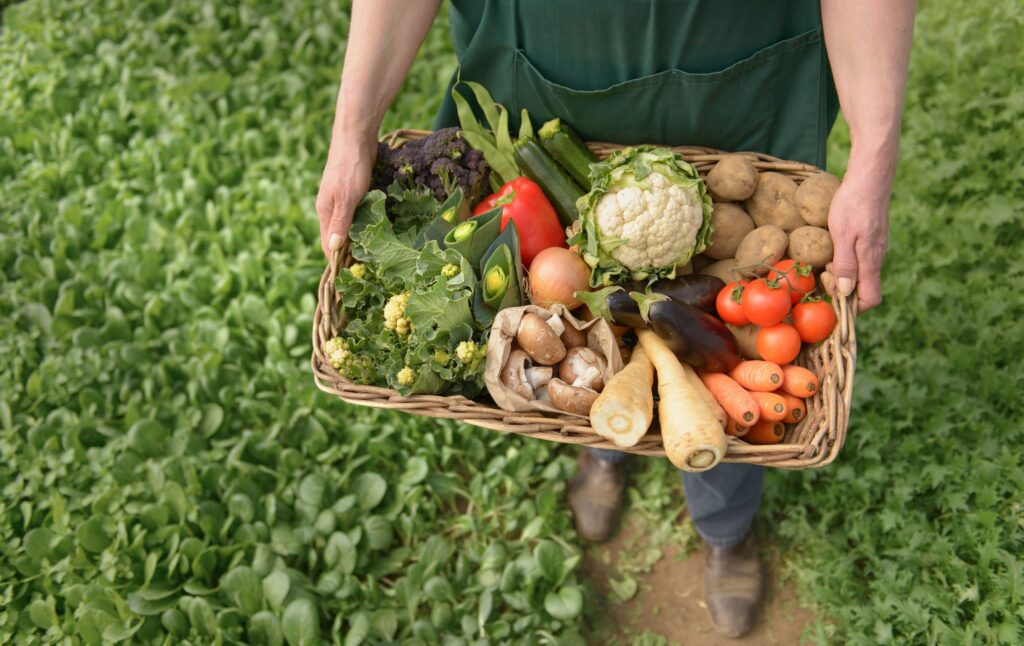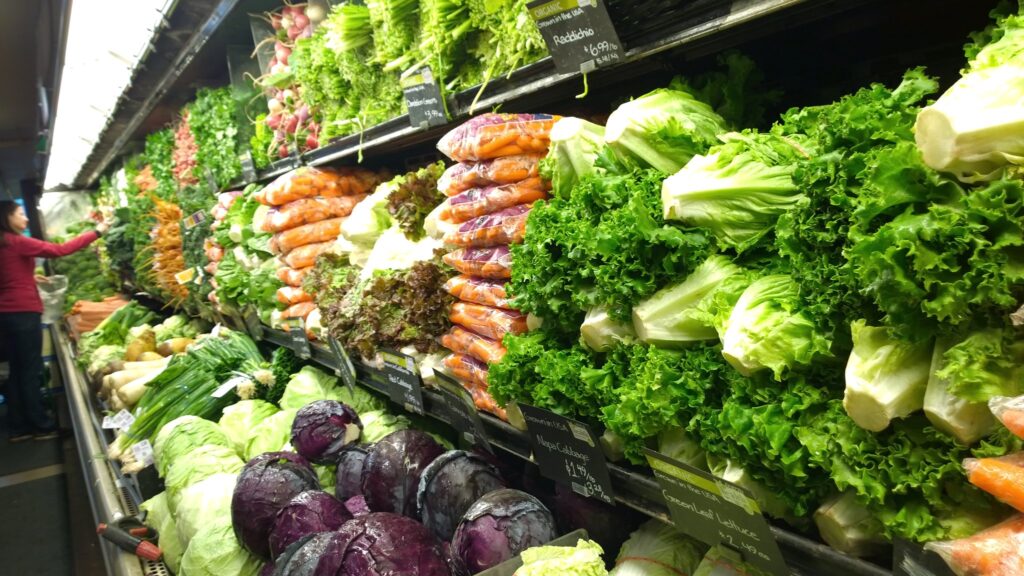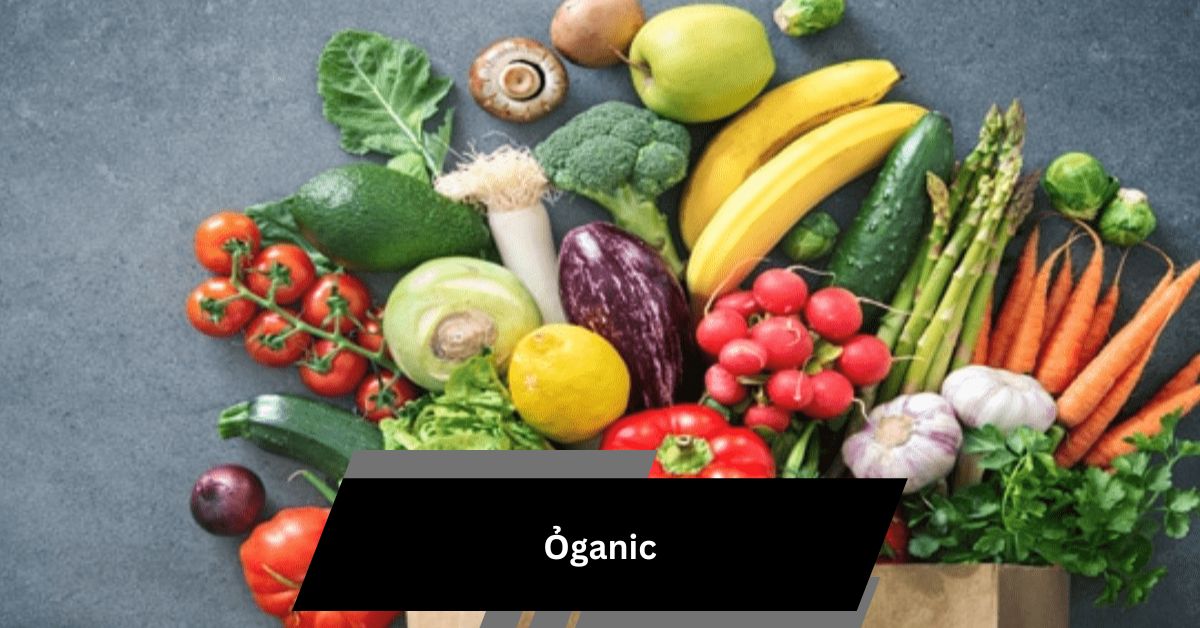Introduction:
As health consciousness and environmental awareness grow, organic products are becoming increasingly popular. These products, free from synthetic chemicals and GMOs, are seen as a healthier choice and a more sustainable option.
This article explores the rising popularity of organic products, their benefits, common misconceptions, and practical tips for incorporating them into your diet, all while highlighting eco-friendly practices in organic farming.
The Growing Popularity of Organic Products:
Organic products have witnessed a significant surge in popularity over recent years. This trend is driven by increasing consumer awareness of health and environmental issues.
As people become more conscious of what they eat and the impact of their choices on the planet, organic foods, which are produced without synthetic pesticides, fertilizers, and genetically modified organisms (GMOs), have become a preferred choice.
The organic market’s growth reflects a shift towards more mindful consumption and a desire for transparency in food production.
What Does “Organic” Mean?
The term “organic” refers to the way agricultural products are grown and processed. Organic farming practices aim to maintain and enhance soil health, minimize pollution, and ensure animal welfare.

Organic products are produced without the use of synthetic chemicals, artificial preservatives, and genetically modified organisms. Instead, they rely on natural methods such as crop rotation, composting, and biological pest control.
This approach not only benefits human health but also supports a more sustainable and eco-friendly food system.
Read: Antarvwsna – Unraveling the Mystery!
Benefits of Consuming Organic Products:
Enhanced Nutritional Value:
Organic products are often praised for their superior nutritional content. Studies suggest that organic fruits and vegetables may have higher levels of vitamins, minerals, and antioxidants compared to their conventional counterparts.
This is attributed to the healthier soil conditions and farming practices that enhance the nutritional profile of organic produce.
Reduced Exposure to Chemicals:
One of the primary benefits of organic products is the reduction in exposure to synthetic pesticides and fertilizers. Organic farming practices avoid harmful chemicals, which can lead to lower pesticide residues in food and reduce the risk of health issues related to chemical exposure.
Environmental Benefits:
Organic farming promotes environmental sustainability by avoiding synthetic chemicals and enhancing soil health through natural methods.
This approach helps reduce pollution, conserve water, and support biodiversity, making organic farming a more eco-friendly choice.
Common Misconceptions About Organic Foods
Organic Means Pesticide-Free:

A common misconception is that organic foods are entirely free of pesticides. While organic farming restricts the use of synthetic pesticides, it does allow certain natural pesticides. Organic methods focus on minimizing pesticide use and employing safer alternatives.
Organic Foods Are Always Healthier:
While organic foods often have fewer synthetic chemicals, they are not necessarily always healthier. Nutritional value can vary based on factors such as soil quality and farming practices. It’s essential to consider a balanced diet and not rely solely on organic products for health benefits.
Organic Is Always Better for the Environment:
Organic farming practices generally promote environmental sustainability, but they are not without impact. Factors such as transportation and packaging can affect the overall environmental footprint. It’s important to consider the broader context of sustainability when evaluating organic products.
How to Incorporate Organic Products into Your Diet:

Start with Staples:
Begin by replacing staple items like fruits, vegetables, dairy products, and grains with organic versions. These are the foods most likely to have pesticide residues and benefit the most from organic practices.
Choose Organic Meat and Dairy:
Organic meat and dairy products come from animals that are raised without antibiotics or synthetic hormones and are fed organic feed. Incorporating these into your diet can contribute to better overall health and support ethical farming practices.
Shop Seasonally and Locally:
Buying seasonal and locally produced organic products can be more cost-effective and environmentally friendly. Local organic farms often have fresher produce and reduce the carbon footprint associated with transportation.
Eco-Friendly and Sustainable Practices in Organic Farming:

Organic farming promotes several eco-friendly practices that contribute to a healthier planet:
- Soil Health: Organic farming enhances soil fertility through composting and crop
rotation, which helps prevent soil erosion and supports plant health.
- Water Conservation: Organic farms use techniques such as mulching and efficient irrigation systems to conserve water and reduce waste.
- Biodiversity: Organic farms support biodiversity by planting a variety of crops, which helps maintain ecosystems and promotes beneficial insects.
Read: VcWeather.org – Your Trusted Weather Update Hub!
FAQ’s
1. What is the primary appeal of organic products?
Organic products are popular due to their perceived health benefits and environmental advantages. They are produced without synthetic chemicals or GMOs, which aligns with growing consumer awareness about health and sustainability.
2. What does “organic” mean in agriculture?
“Organic” refers to farming practices that avoid synthetic chemicals, artificial preservatives, and GMOs. Instead, organic farming uses natural methods like crop rotation and composting to maintain soil health and promote environmental sustainability.
3. Are organic foods always free from pesticides?
No, organic foods are not entirely free from pesticides. While organic farming restricts synthetic pesticides, it permits certain natural pesticides. The goal is to minimize pesticide use and use safer alternatives.
4. How can I start incorporating organic products into my diet?
Begin by replacing staple items such as fruits, vegetables, and grains with organic versions. You can also choose organic meat and dairy, and shop for seasonal and locally produced organic products for better freshness and cost-effectiveness.
5. What are some eco-friendly practices in organic farming?
Organic farming promotes eco-friendly practices such as enhancing soil health through composting and crop rotation, conserving water with efficient irrigation and mulching, and supporting biodiversity by planting diverse crops to maintain ecosystems.
Conclusion
Staying informed about health and wellness trends is crucial for making better lifestyle choices. By keeping up with the latest research and expert advice, you can make decisions that positively impact your well-being. Knowledge empowers you to adopt healthier habits and improve your overall quality of life.
Read more:





